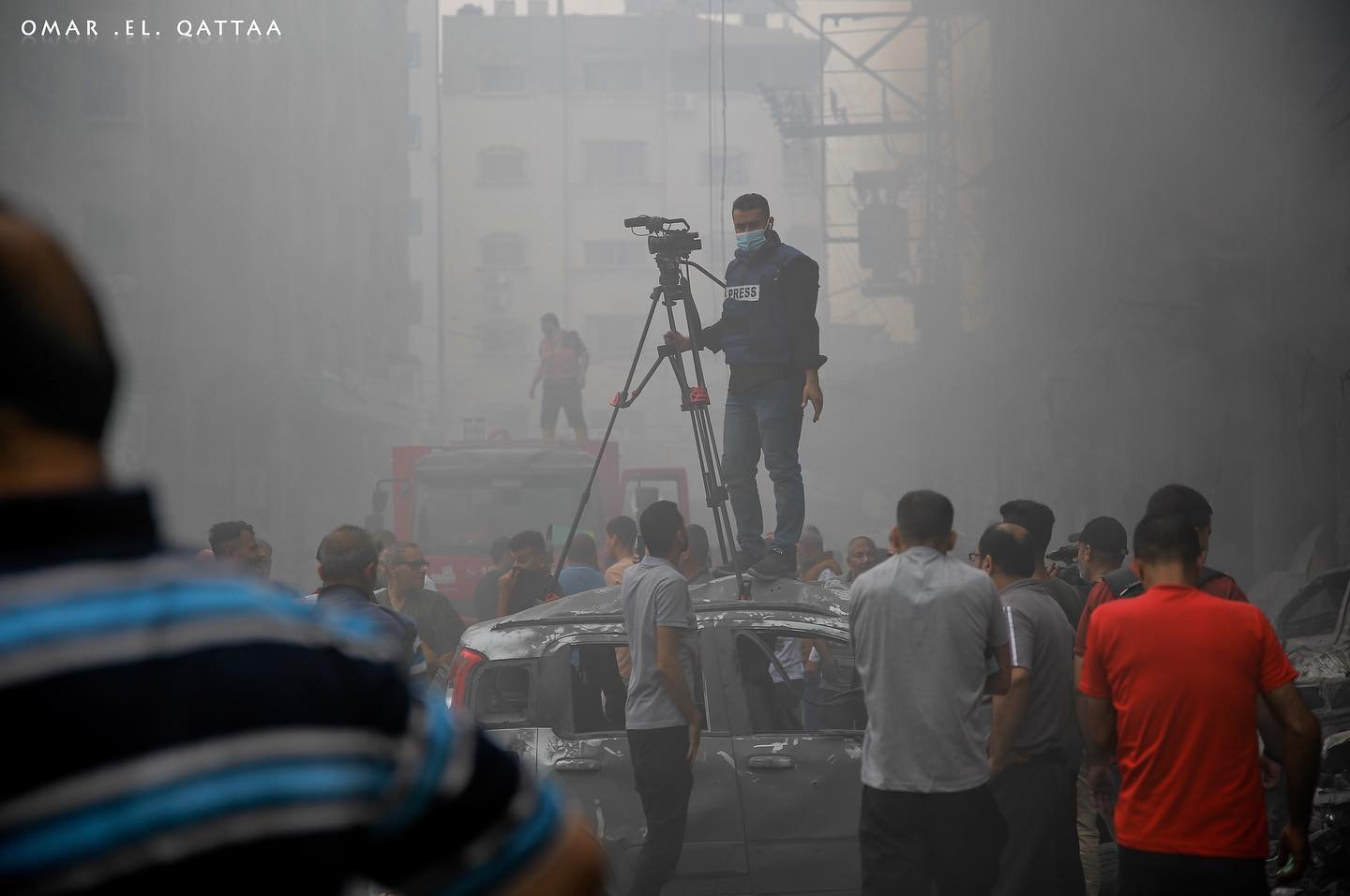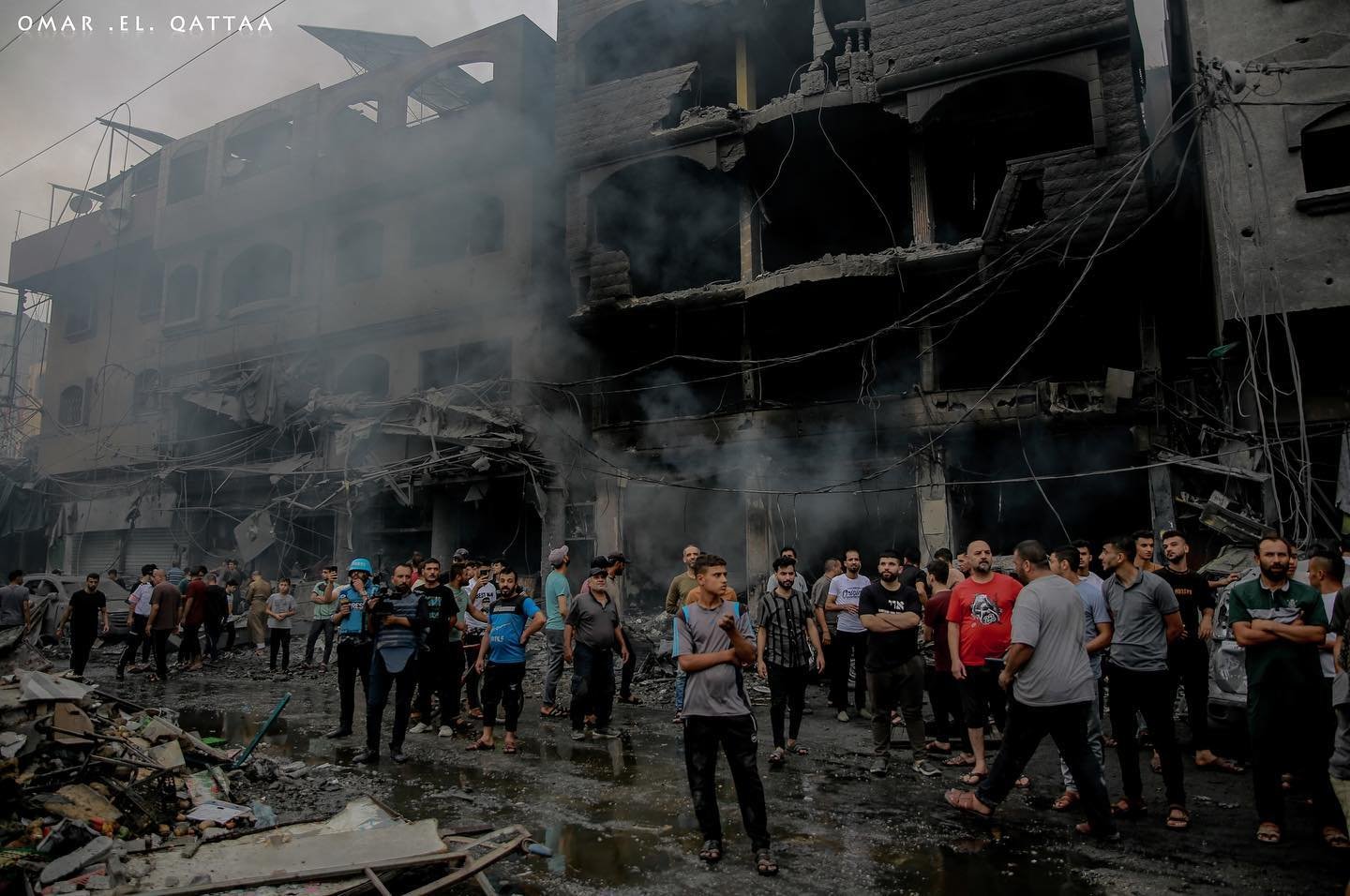
Mass destruction
Gaza in ruins
Unprecedented Destruction and a Humanitarian Catastrophe
The widespread destruction of Gaza following the conflict escalation on October 7th, 2023, has led to catastrophic humanitarian consequences. Reports estimate that
Approximately 227,000 housing units have been entirely destroyed, displacing hundreds of thousands of families.
Between 144,000 and 175,000 buildings across the whole Gaza Strip have been damaged or destroyed. That's between 50% and 61% of Gaza's buildings.
85 percent of school buildings in Gaza have been hit or damaged, affecting the education of nearly 400,000 children.
The healthcare system has been crippled, 17 out of 36 hospitals remain functional – all partially – and just 57 out of 132 primary health-care facilities are functional.
International law, particularly through the Geneva Conventions and the Rome Statute, provides a clear framework that prohibits mass bombings, indiscriminate bombings, and the targeting of civilian homes in armed conflict.
The Geneva Conventions, specifically the Fourth Geneva Convention (1949), focuses on the protection of civilian persons in times of war. Article 27 emphasizes the obligation of parties to a conflict to take all necessary precautions to ensure the protection of civilians and civilian objects. Furthermore, Article 49 prohibits collective penalties and acts of retaliation against the civilian population, underscoring the principle that civilians must not be attacked or subjected to acts of violence.
Additionally, Additional Protocol I to the Geneva Conventions clarifies the distinction between combatants and civilians. Article 48 mandates respect for civilian populations, prohibiting attacks on civilian objects unless they are being used for military purposes. Article 51 further reinforces the principle of distinction by declaring that indiscriminate attacks are prohibited; such attacks are those which are not directed at a specific military objective or which may cause excessive civilian damage compared to the anticipated military advantage.
The Rome Statute of the International Criminal Court (1998) also plays a critical role in defining and prosecuting war crimes. Article 8 outlines a range of serious violations of international humanitarian law, including intentionally directing attacks against the civilian population as such, or against individual civilians not taking a direct part in hostilities. These acts constitute war crimes and are subject to prosecution.
In summary, both the Geneva Conventions and the Rome Statute clearly establish legal prohibitions against mass bombings, indiscriminate bombings, and the targeting of civilian homes. Violations of these norms are seen as serious breaches of international law, aimed at ensuring the protection of civilians and upholding the fundamental principles of humanity in armed conflicts.
Click on images for original sources

Video by Mohammed Saber Arab

Video by Sami F Barhoom

Video by Mohmed Hamss

Photo by Omar el Qattaa

Photo by Omar el Qattaa

Photo by Omar el Qattaa

Photo by Omar el Qattaa

Photo by Omar el Qattaa

Photo by Omar el Qattaa

Photo by Omar el Qattaa

Photo by Yousef Mema

Video by

Photo by Omar el Qattaa

Photo by Omar el Qattaa

Photo by Omar el Qattaa

Photo by Mahmoud Bassam

Photo by Mahmoud Bassam

Photo by Omar el Qattaa

Photo by Mahmoud Bassam

Video by Hussein Karsoua

Video by Shadi Al Tabatiby

Video by Omar el Qattaa
The destruction of Gaza stands as a stark testament to the genocidal war, characterized by widespread destruction of infrastructure, homes, and essential services. Israel’s relentless bombardments has reduced neighborhoods to rubble, leaving hundreds of thousands of Palestinian families displaced and in desperate need of aid and an immediate intervention. Schools and hospitals have been severely damaged or destroyed, further exacerbating the suffering of an already vulnerable population. The lack of access to clean water, electricity, and medical supplies highlights the dire conditions faced by civilians, underscoring the urgent need for international attention and accountability for the violations of human rights that have unfolded in this besieged territory. The toll on human life and dignity is immeasurable, calling for a concerted effort to address the immediate needs of those affected while pursuing justice for the atrocities committed.
Indiscriminate bombing and the destruction of critical infrastructure during armed conflict constitute serious violations of international law, particularly as outlined in the Geneva Conventions and the Rome Statute. According to Article 54 of Protocol I of the Geneva Conventions, it is prohibited to attack, destroy, remove, or render useless objects indispensable to the survival of the civilian population, such as water supply systems and food stocks. Furthermore, the Rome Statute of the International Criminal Court identifies such acts as war crimes, specifically under Article 8, which outlines the protection of civilian objects and prohibits unnecessary destruction. These legal frameworks underscore the obligation of all parties in a conflict to distinguish between military targets and civilian infrastructure, thus affirming the need for accountability in the wake of violations.
Sarkha Project is currently engaged in the meticulous processing of evidence pertaining to documented incidents of indiscriminate bombings in Gaza ; however, we recognize the urgency of your request. Accordingly, we invite you to submit an evidence request in advance. While we are unable to provide immediate access to the processed materials, we assure you that once the analysis is complete and the evidence is validated, we will promptly fulfill your request. This procedure underscores our commitment to ensuring that all disseminated information adheres to our rigorous standards of accuracy and integrity.
The images displayed in the gallery above are not owned by Sarkha Project and are used solely for educational and informational purposes related to the documentation of human rights violations. If you are the copyright holder of any image and wish to have it removed, please contact us directly, and we will promptly address your request. All efforts have been made to credit the respective owners, and we respect all copyright laws.